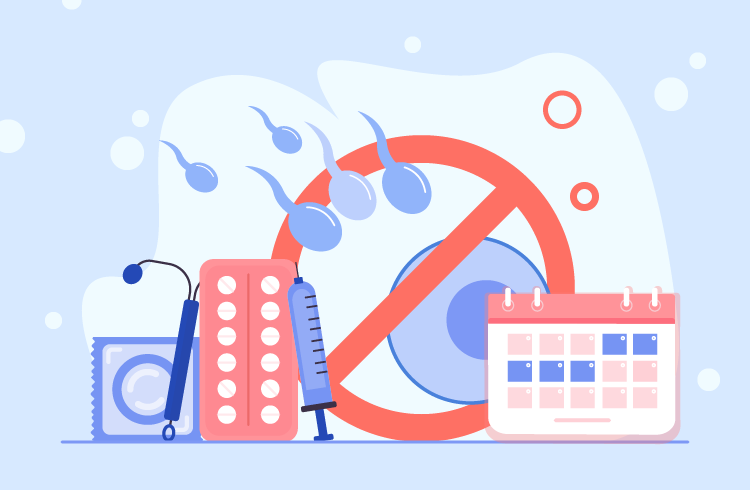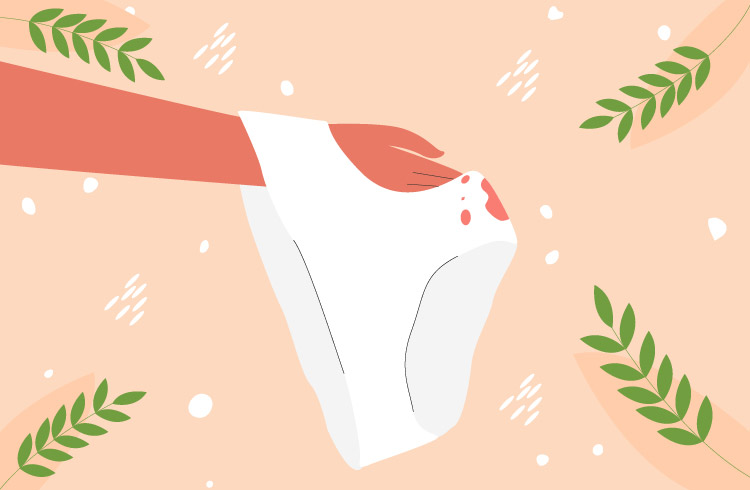Many studies have shown that breastfeeding is beneficial to both the baby and the mother, and breast milk is often referred to as golden milk, but breastfeeding can cause pain and many inconveniences to the mother. Esxpecially beastfeeding while period. The decision to breastfeed is a personal one, and moms-to-be should be fully informed of the pros and cons of breastfeeding before making the choice.

Benefits of Breastfeeding for Babies
Breast milk contains about 87-88% water and about 7% carbohydrates, 1% protein and 3.8% fat. The exact proportions vary according to the mother's diet and environmental factors. This rich nutrient profile contributes immensely to a baby's development and immune system.
Studies have shown that breastfeeding reduces the risk of diarrhea, vomiting, preterm necrotizing enterocolitis (NEC), pneumonia, eczema, and other illnesses because it is easily digested, easing the burden on the babies' immature intestinal tract, and the antibodies contained in breast milk strengthen the babies' defenses and have a miraculous soothing effect. In addition, breastfeeding reduces the risk of tooth decay and malocclusion in babies under one year of age.
When Do You Get Your Period After Birth While Breastfeeding
Despite the benefits of breast milk, it is tough for mothers, it is a constant problem of breast pain and even cracked nipples leading to mastitis and breast infections.
It takes time for the moms to recover to a normal menstrual cycle as a prenatal state after birth. Breastfeeding usually slows down the recovery speed for the mother, sometimes for months or even a few years.
What Affects When Your Periods Will Return?
The frequency and duration of breastfeeding
Sensitivity of the reproductive system to breastfeeding hormones
While breastfeeding may cause irregular periods, they typically become more regular after you stop breastfeeding, bringing you a faster recovery speed, and a normal level of menstruation bleeding.
Some mothers may face the issues of lack of milk production; others will have excess milk leading to breast swelling and pain, often requiring breast pumps and milk storage bags to solve the problem.
Newborns typically require feeding every few hours, which can disrupt mothers' daily routines and place strain on their bodies in the postpartum period.

In most public spaces, the limitation of mother and baby room availability makes mothers who need to breastfeed timely cannot ignore the judgment from others. Moreover, the societal attitudes at certain parties may stigmatize breastfeeding, and all of these are adding pressure on mothers, both physically and mentally.
Breastmilk may have many benefits, but they may be exaggerated; the decision to breastfeed should be made by the mother, not by the benefits of breastfeeding.
When & How to Stop Breastfeeding?
Presently, there is no exact research showing when breastfeeding needs to stop, but experts recommend that exclusive breastfeeding or formula feeding should continue until the baby is six months old, and other complementary foods should be gradually added after six months. When the baby shows interest when others are eating and can lift his head and sit down without support, it may be time to feed solid food. Your specific baby feeding plan needs to be discussed with your doctor.
Takeaways
Accurate knowledge and skills about breastfeeding are important in deciding whether to breastfeed. It is also essential to realize that mothers need time to recover after childbirth, and a healthy baby needs a contented mother. If breastfeeding causes you physical or psychological pain, transitioning to formula milk is an equal option without feeling guilty.
This article is the original creation of Femometer. All rights reserved by Femometer Inc. To reproduce, distribute, or reference the content, please reach out to us in advance to prevent any potential legal issues. Copyright © Femometer Inc.






-can-you-test-positive-page.png)



